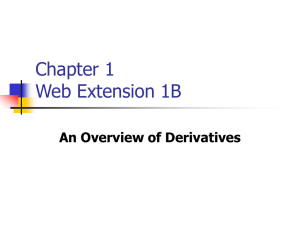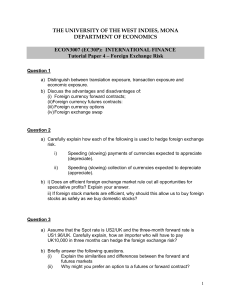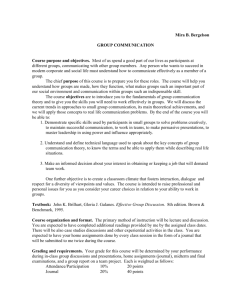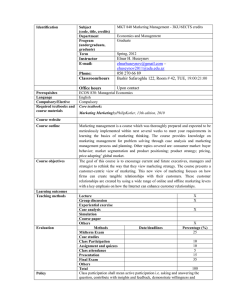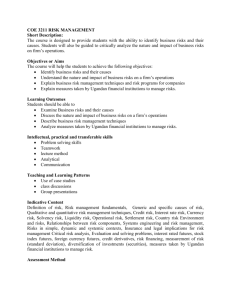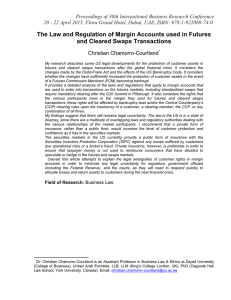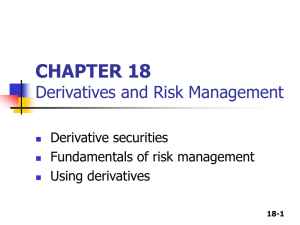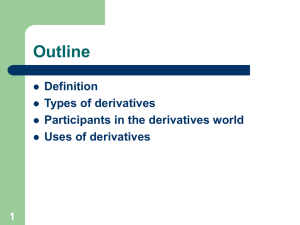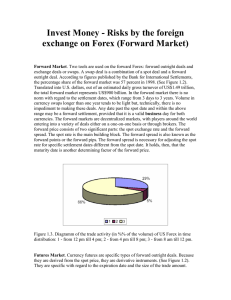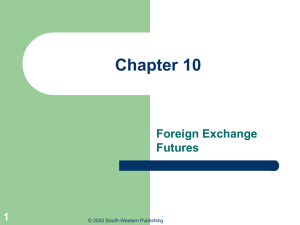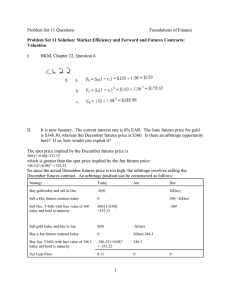Instructor: David Gaddis Ross Class Hours
advertisement
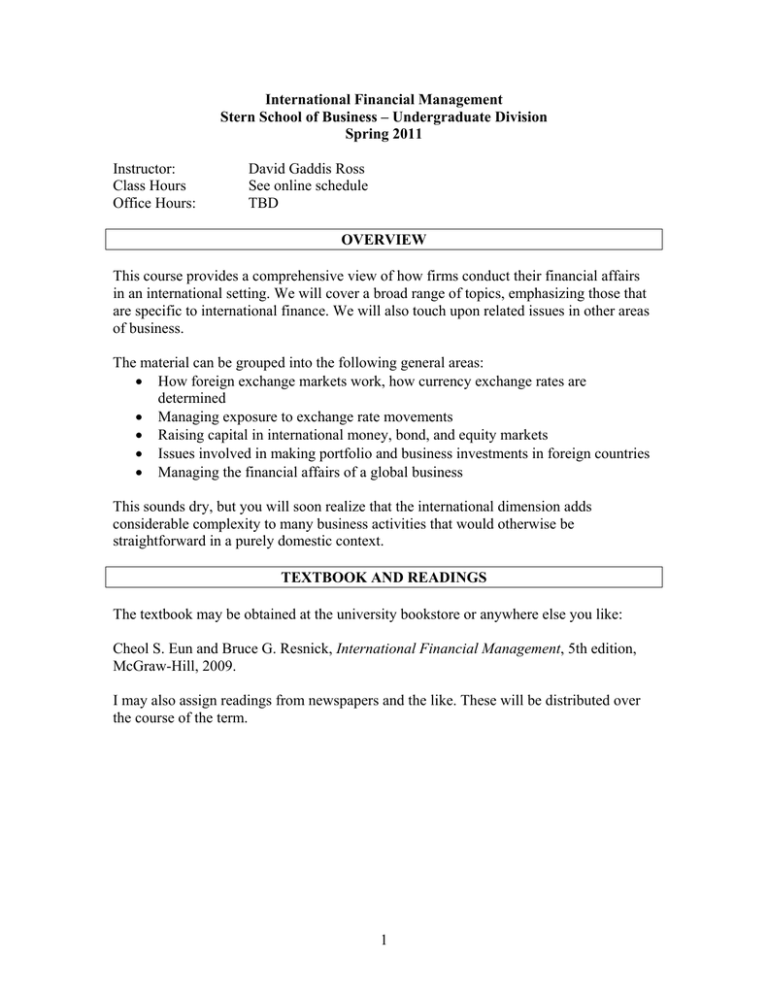
International Financial Management Stern School of Business – Undergraduate Division Spring 2011 Instructor: Class Hours Office Hours: David Gaddis Ross See online schedule TBD OVERVIEW This course provides a comprehensive view of how firms conduct their financial affairs in an international setting. We will cover a broad range of topics, emphasizing those that are specific to international finance. We will also touch upon related issues in other areas of business. The material can be grouped into the following general areas: • How foreign exchange markets work, how currency exchange rates are determined • Managing exposure to exchange rate movements • Raising capital in international money, bond, and equity markets • Issues involved in making portfolio and business investments in foreign countries • Managing the financial affairs of a global business This sounds dry, but you will soon realize that the international dimension adds considerable complexity to many business activities that would otherwise be straightforward in a purely domestic context. TEXTBOOK AND READINGS The textbook may be obtained at the university bookstore or anywhere else you like: Cheol S. Eun and Bruce G. Resnick, International Financial Management, 5th edition, McGraw-Hill, 2009. I may also assign readings from newspapers and the like. These will be distributed over the course of the term. 1 REQUIREMENTS AND GRADING Students will be required to complete two midterm exams (each contributing 20% to the final grade), and a comprehensive final exam (45% of the final grade). Participation contributes 10% to the final grade, and satisfactory completion of the homework contributes 5%. The grading will follow the standard policies of the Stern Finance department for undergraduate courses. Class Participation Attendance is required and it is expected that students will come prepared. If you cannot attend class for any reason at any time, you must notify me in advance. Otherwise, the grading for participation is based on the common sense notion of “active involvement.” It is not a contest to see who can speak the most in class. Rather, students are expected to engage actively in class discussions. Quality and attitude are more important than quantity. Asking questions of me or fellow students (where appropriate) also counts. Homework I will assign homework problems from the textbook and elsewhere throughout the class. Solutions will also be provided at a later date. Your homework grade is determined by the degree to which you make an honest effort to get everything right. It is okay to make mistakes. If you get stuck, just explain why. You are welcome to talk about the homework with other students, but each student should hand in a separate set of answers. Cheating Do not cheat. There are severe penalties for doing so. 2 Tentative Class Schedule (Chapters #s from International Financial Management in Parentheses) Week Monday Wednesday 1 Introduction (1, 2) Foreign Exchange Markets (5) 2 Forecasting Exchange Rates (6) Forecasting Exchange Rates (6) 3 Forecasting Exchange Rates (6) Futures and Options on Foreign Exchange (7) 4 Futures and Options on Foreign Exchange (7) Futures and Options on Foreign Exchange (7) 5 President’s Day, 2/21 Futures and Options on Foreign Exchange (7) 6 Midterm, 2/28 Interest Rate and Currency Swaps (14) 7 Interest Rate and Currency Swaps (14) International Money Market (11) 8 International Bond Market (12) International Equity Market (13) 9 International Portfolio Investment (15) Cost of Capital for the Global Firm (17) 10 International Business Investment (18) International Business Investment (18) 11 Midterm, 3/11 Managing Transaction Exposure (8) 12 Managing Economic Exposure (9) Managing Accounting Exposure (11) 13 Multinational Cash Management (19) International Taxation (21) 14 Regulatory Arbitrage Regulatory Arbitrage 15 Corporate Governance (4) 3
